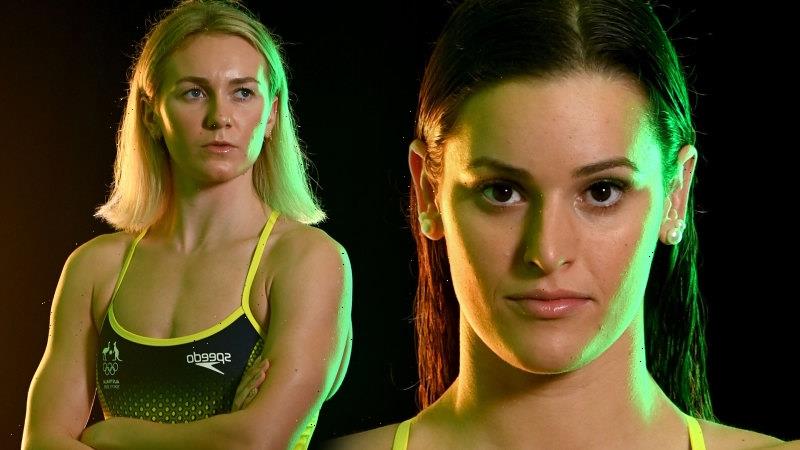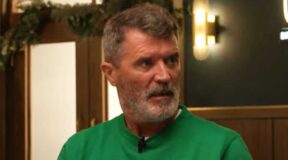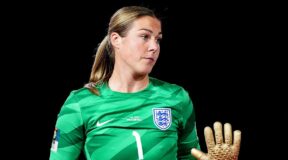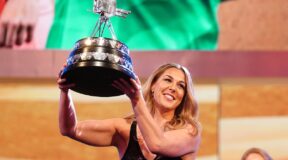Ariarne Titmus: 200m freestyle, 400m freestyle, 800m freestyle
Don’t read much into the musings of international sports writers forecasting the rise of a potential challenger to the greatness of Katie Ledecky, because Ariarne Titmus is already there. Ledecky looks a certainty in the 800m and 1500m but in the 400m and 200m, the young Australian is setting the standard. She has yet to produce at an Olympics but Titmus beat Ledecky in the 400m at the 2019 World Championships and comes to play every time she’s in the water. Titmus respects everyone and fears nobody. Her 400m showdown with the pride of Team USA will be one of the great Olympic races, while the 200m is hers to lose.
Kaylee McKeown: 100m backstroke, 200m backstroke
McKeown was on the rise for 12 months before the Games. After breaking the world record in the 100m backstroke at the national trials, she is on the verge of becoming a breakout star in Tokyo. She will also start favourite in the 200m backstroke but was scratched from the 200m IM, a race where she was favourite for gold. Worries about overloading her program and scheduling clashes led her to sacrifice a medal chance there and put everything into the twin-back assault. Her touching story, which includes the loss of her father to brain cancer last year, means there won’t be a dry eye in lounge rooms across the country if she triumphs.
Elijah Winnington: 200m freestyle, 400m freestyle
Such is the depth of this Dolphins squad that the young man who could win Australia’s first gold has struggled to rate much of a mention. The 21-year-old from the Gold Coast is primed to repeat Mack Horton’s day one Rio heroics when he steps up for the 400m freestyle. Winnington has the fastest time in the world this year (3:42.65s) and if he gets close to that mark, will take an absolute power of beating. His biggest rival could be the other Australian, Jack McLoughlin, who has the second-quickest time in 2021. Winnington will also swim the 200m freestyle and is an outside chance for a medal.
Cate Campbell and Emma McKeon at the national trials in Adelaide last month.Credit:Getty
Emma McKeon: 50m freestyle, 100m freestyle, 100m butterfly
For some swimmers, the Games delay was costly in terms of medal prospects and form. But for the ultra-consistent McKeon, the stars look to have aligned perfectly. McKeon has been one of our top performers for years but has taken her sprinting to a new level, heading into Tokyo as one of the gold medal favourites in both freestyle dashes. She is also a major contender in the 100m fly. She’s a top-class 200m swimmer as well but dropped that event given her heavy program, which also includes a swag of relays. The 27-year-old stands to win the most medals of any Australian in Tokyo, with seven on the table. The Australian single-Games record is five (Shane Gould, Ian Thorpe, Alicia Coutts).
Kyle Chalmers: 100m freestyle
The Adelaide native stunned the world when he charged through the pool to win gold in the 100m freestyle in Rio. Five years later, he returns to defend his crown in the blue-ribbon sprint. But those seeking his title are supremely talented, among them American star and world champion Caeleb Dressel, who beat Chalmers into silver in a ridiculously fast final at the 2019 FINA World Championships. Others have emerged; a 16-year-old from Romania named David Popovici has come from the clouds to own the sharpest time this year. But Chalmers knows how to get to the wall as well as any of his major rivals. Can he win again? Of course.
Kaylee McKeown (left) and Ariarne Titmus are among the names to watch out for.Credit:Getty Images
Zac Stubblety-Cook: 100m breaststroke, 200m breaststroke
Brisbane product Stubblety-Cook is another athlete who has made the most of the extra year of training, with the 22-year-old putting it all together brilliantly at the Olympic trials to set a world-leading time in the 200m breaststroke. His talent was never an issue but Stubblety-Cook stumbled at his first major meet, the 2018 Commonwealth Games, before beginning the long climb towards Tokyo. Having no crowds may work in his favour given one his major rivals is Japanese hero Shoma Sato, as well as Russian world record holder Anton Chupkov. Stubblety-Cook will also step out in the 100m but with Great Britain’s Adam Peaty making it a one-horse race, a medal would be a stretch.
Cate Campbell: 50m freestyle, 100m freestyle
Campbell’s return to the top after Rio has been one of the great redemption stories of Australian sport. After such a public low in Brazil, she carries the flag for the Australian team and remains a key player in the pool. She will anchor the 4x100m freestyle relay that should win gold on day one, and remains firmly in contention in both the freestyle sprints. What she would love to do is simply swim to her potential at the Games. If she does, it means medals. At 29, she’s still lightning fast.
Madi Wilson: 200m freestyle
Wilson is one of the unsung heroes of the Australian team. A former backstroker who has turned into a brutally effective 100m and 200m freestyler, Wilson will be a key member of two relays that both stand on the blocks as unbackable gold medal favourites. She also gets a deserved individual swim in the 200m after McKeon withdrew from the event. It’s only Australia’s excellence in the 100m ranks that has denied Wilson a swim there as well. She has the ninth-fastest time in the world this year over that distance but the next eight spots all belong to McKeon and Campbell, her Dolphins teammates. When she’s in the water in the team events, you can watch her legs with the utmost confidence.
Mitch Larkin: 100m backstroke, 200m IM
The affable Queenslander is one of the nice guys of Australian sport and enters his third Games with more medals up for grabs after a silver in the 200m backstroke in Rio. He made the difficult call to drop that event to focus on the 200m IM instead, with the timing meaning it was impossible to compete in both. He will have to improve dramatically to win a medal in the 100m backstroke but he stands a good chance of getting on the podium in the medley, with America’s Michael Andrew and Brit Duncan Scott among the men he must try to get past.
Brendon Smith: 400m IM
The 21-year-old from Nunawading could be one out of the box in an event that has proven difficult for Australia. Since 1964, when the race was included on the Olympic program, only Rob Woodhouse (1984, Los Angeles) has been able to bag a medal. But Smith put it all on the line to break the Australian record at the trials and only six swimmers have gone quicker this year. It’s an exceptionally tight race, headlined by Japanese great Daiya Seto, but any improvement from Smith puts him right in the contest for a medal.
Never miss a medal or great sporting moment with our Olympic update emailed daily. Sign up for our Sport newsletter here.
Most Viewed in Sport
From our partners
Source: Read Full Article







